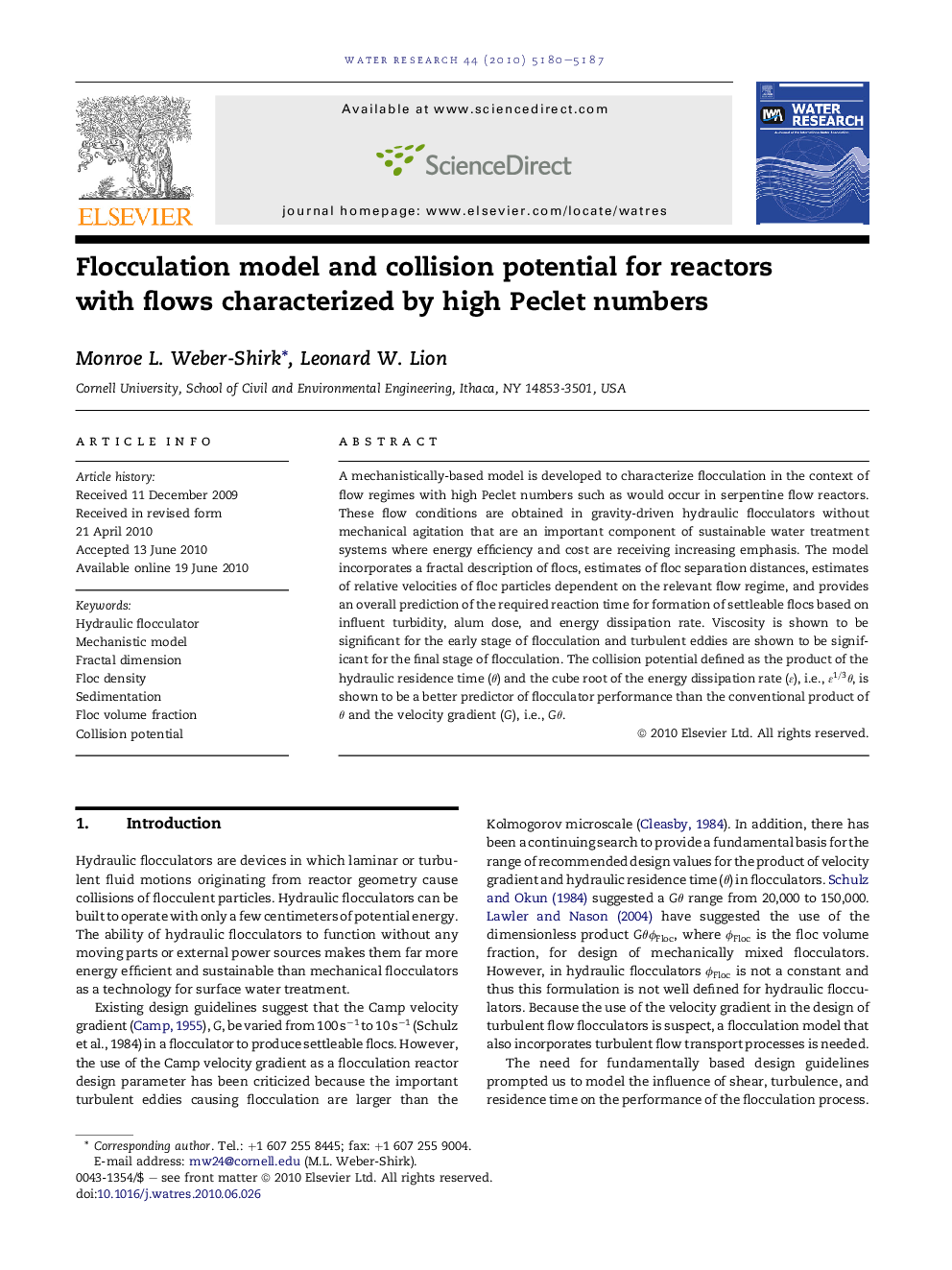| Article ID | Journal | Published Year | Pages | File Type |
|---|---|---|---|---|
| 4484707 | Water Research | 2010 | 8 Pages |
A mechanistically-based model is developed to characterize flocculation in the context of flow regimes with high Peclet numbers such as would occur in serpentine flow reactors. These flow conditions are obtained in gravity-driven hydraulic flocculators without mechanical agitation that are an important component of sustainable water treatment systems where energy efficiency and cost are receiving increasing emphasis. The model incorporates a fractal description of flocs, estimates of floc separation distances, estimates of relative velocities of floc particles dependent on the relevant flow regime, and provides an overall prediction of the required reaction time for formation of settleable flocs based on influent turbidity, alum dose, and energy dissipation rate. Viscosity is shown to be significant for the early stage of flocculation and turbulent eddies are shown to be significant for the final stage of flocculation. The collision potential defined as the product of the hydraulic residence time (θ) and the cube root of the energy dissipation rate (ɛ ), i.e., ɛ1/3θɛ1/3θ, is shown to be a better predictor of flocculator performance than the conventional product of θ and the velocity gradient (G), i.e., Gθ.
